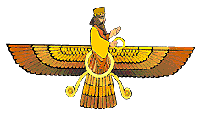Welcome To Roj Bash Kurdistan


.
10 posts
• Page 1 of 1
-

BARBARROSA - Nubar

- Posts: 43
- Joined: Fri Oct 05, 2007 4:02 pm
- Highscores: 0
- Arcade winning challenges: 0
- Has thanked: 0 time
- Been thanked: 1 time
Re: AMERICAN HOUSE PANEL APPROVES ARMENIAN GENOCIDE BILL
http://www.cnn.com/2007/WORLD/europe/10 ... index.html
(CNN) -- Turkey's government on Thursday warned the U.S. that a congressional bill recognizing the mass killings of Armenians during World War One as genocide could jeopardize relations between the two countries.
In a statement, Turkey's foreign ministry said the country's government "resents and condemns this decision" and called the resolution an "irresponsible act" at an "extremely critical time."
The issue threatened to "not only endanger the relations with a friendly and allied nation but also jeopardize a strategic partnership that has been cultivated for generations," it added.
"We still hope that common sense will prevail and that the House of Representatives will not move this resolution any further."
The resolution was passed by the House Foreign Affairs Committee by a 27-21 vote -- the first step towards a full House vote -- on Wednesday evening despite opposition from U.S. President George W. Bush.
Turkish President Abdullah Gul, who has warned in a letter to Bush that U.S. recognition of the mass killings as genocide would cause "serious problems" between the countries, called the resolution "unacceptable."
Meanwhile Turkey's ambassador to the U.S., Nabi Sensoy, said the resolution would be a "very injurious move to the psyche of the Turkish people," predicting that its passage would create a backlash in his country.
Egemen Bagis, a foreign policy adviser to Turkish Prime Minister Recep Tayyip Erdogan, told an audience in Washington that U.S. lawmakers wanted to play hard ball, adding: "I can assure you Turkey knows how to play hard ball."
Bagis added that Turkey would respond if Congress passed a bill and warned: "I can promise you it won't be pleasant."
He cited Turkey's refusal to allow French airplanes to cross its air space since France passed a law declaring it a crime to deny that the mass killings of Armenians between 1915 and 1923 constituted genocide.
The vote was also strongly criticized by Turkish newspapers, The Associated Press reported. "Bill of hatred," said Hurriyet's front page, while Vatan's headline read "27 foolish Americans.
Turkish protests come with relations between Washington and Ankara already tense amid Turkish military and political preparations for a possible strike into northern Iraq in response to recent attacks by Kurdish militants.
Turkey accuses fighters of the Kurdistan Workers' Party (PKK) of operating from bases inside Iraqi territory. However, the U.S. has urged its NATO ally to refrain amid fears they could destabilize the relatively peaceful region -- a key route for supplies into northern Iraq.
Turkish lawmakers were due to meet on Thursday to discuss a motion intended to secure their approval for cross-border operations.
But Turkish Prime Minister told CNN Turk that a decision was unlikely before next week due to the holiday marking the end of Ramadan.
Bush, along with Secretary of State Condoleezza Rice and Defense Secretary Robert Gates on Wednesday warned U.S. lawmakers that the Armenia "genocide" resolution would create unnecessary headaches for U.S. relations with Turkey.
Speaking after the vote, U.S. Undersecretary of State Nick Burns told reporters that Rice would call the Turkish leadership Thursday to express the administration's "deep disappointment" over the vote.
"We want to convey to the Turkish people and the Turkish government a message of respect and a message of support for them and the hope we can continue to work together with them," Burns said.
Democratic representatives said they intended to bring the resolution to the House floor for a full vote. Adam Schiff, the resolution's sponsor, said the U.S. had a "compelling historical and moral reason" to recognize the mass killing of Armenians as genocide.
But House Minority Leader John Boehner said jeopardizing the U.S. military and strategic alliance with Turkey would be "totally irresponsible."
"Let the historians decide what happened 90 years ago," he added.
The resolution says that the deportation of nearly two million Armenians from the Ottoman Empire during and after World War One, resulting in the deaths of 1.5 million of them, was "systematic" and "deliberate," amounting to "genocide."
The Armenian government and Armenians around the world, including many Armenian-Americans, have been pressing for international recognition of their contention that their people were the victims of genocide at the hands of the Ottoman Turks.
Armenian President Robert Kocharian welcomed the resolution on Thursday, AP reported, saying: "We hope this process will lead to a full recognition by the United States of America ... of the genocide."
advertisement
The issue remains highly sensitive in Turkey, where many insist there was no organized campaign against the Armenians and that many Turks also died in the chaos and violence of the period.
In an interview with CNN, Sensoy said the events of the era were tragic for both Turks and Armenians and that hundreds of thousands died in "mutual killings."
(CNN) -- Turkey's government on Thursday warned the U.S. that a congressional bill recognizing the mass killings of Armenians during World War One as genocide could jeopardize relations between the two countries.
In a statement, Turkey's foreign ministry said the country's government "resents and condemns this decision" and called the resolution an "irresponsible act" at an "extremely critical time."
The issue threatened to "not only endanger the relations with a friendly and allied nation but also jeopardize a strategic partnership that has been cultivated for generations," it added.
"We still hope that common sense will prevail and that the House of Representatives will not move this resolution any further."
The resolution was passed by the House Foreign Affairs Committee by a 27-21 vote -- the first step towards a full House vote -- on Wednesday evening despite opposition from U.S. President George W. Bush.
Turkish President Abdullah Gul, who has warned in a letter to Bush that U.S. recognition of the mass killings as genocide would cause "serious problems" between the countries, called the resolution "unacceptable."
Meanwhile Turkey's ambassador to the U.S., Nabi Sensoy, said the resolution would be a "very injurious move to the psyche of the Turkish people," predicting that its passage would create a backlash in his country.
Egemen Bagis, a foreign policy adviser to Turkish Prime Minister Recep Tayyip Erdogan, told an audience in Washington that U.S. lawmakers wanted to play hard ball, adding: "I can assure you Turkey knows how to play hard ball."
Bagis added that Turkey would respond if Congress passed a bill and warned: "I can promise you it won't be pleasant."
He cited Turkey's refusal to allow French airplanes to cross its air space since France passed a law declaring it a crime to deny that the mass killings of Armenians between 1915 and 1923 constituted genocide.
The vote was also strongly criticized by Turkish newspapers, The Associated Press reported. "Bill of hatred," said Hurriyet's front page, while Vatan's headline read "27 foolish Americans.
Turkish protests come with relations between Washington and Ankara already tense amid Turkish military and political preparations for a possible strike into northern Iraq in response to recent attacks by Kurdish militants.
Turkey accuses fighters of the Kurdistan Workers' Party (PKK) of operating from bases inside Iraqi territory. However, the U.S. has urged its NATO ally to refrain amid fears they could destabilize the relatively peaceful region -- a key route for supplies into northern Iraq.
Turkish lawmakers were due to meet on Thursday to discuss a motion intended to secure their approval for cross-border operations.
But Turkish Prime Minister told CNN Turk that a decision was unlikely before next week due to the holiday marking the end of Ramadan.
Bush, along with Secretary of State Condoleezza Rice and Defense Secretary Robert Gates on Wednesday warned U.S. lawmakers that the Armenia "genocide" resolution would create unnecessary headaches for U.S. relations with Turkey.
Speaking after the vote, U.S. Undersecretary of State Nick Burns told reporters that Rice would call the Turkish leadership Thursday to express the administration's "deep disappointment" over the vote.
"We want to convey to the Turkish people and the Turkish government a message of respect and a message of support for them and the hope we can continue to work together with them," Burns said.
Democratic representatives said they intended to bring the resolution to the House floor for a full vote. Adam Schiff, the resolution's sponsor, said the U.S. had a "compelling historical and moral reason" to recognize the mass killing of Armenians as genocide.
But House Minority Leader John Boehner said jeopardizing the U.S. military and strategic alliance with Turkey would be "totally irresponsible."
"Let the historians decide what happened 90 years ago," he added.
The resolution says that the deportation of nearly two million Armenians from the Ottoman Empire during and after World War One, resulting in the deaths of 1.5 million of them, was "systematic" and "deliberate," amounting to "genocide."
The Armenian government and Armenians around the world, including many Armenian-Americans, have been pressing for international recognition of their contention that their people were the victims of genocide at the hands of the Ottoman Turks.
Armenian President Robert Kocharian welcomed the resolution on Thursday, AP reported, saying: "We hope this process will lead to a full recognition by the United States of America ... of the genocide."
advertisement
The issue remains highly sensitive in Turkey, where many insist there was no organized campaign against the Armenians and that many Turks also died in the chaos and violence of the period.
In an interview with CNN, Sensoy said the events of the era were tragic for both Turks and Armenians and that hundreds of thousands died in "mutual killings."
Awesta
-

Marie K. - Shermin

- Posts: 306
- Joined: Sun Apr 29, 2007 3:46 pm
- Location: France (paris)
- Highscores: 0
- Arcade winning challenges: 0
- Has thanked: 0 time
- Been thanked: 0 time
- Nationality: Hispanic
Re: AMERICAN HOUSE PANEL APPROVES ARMENIAN GENOCIDE BILL
progress? about which topic?
do you see this bill as ethical one? Specially, when they are using lie famous quate "who remember armenians?" from hitler.
do you see this bill as ethical one? Specially, when they are using lie famous quate "who remember armenians?" from hitler.
-

zurderer - Ashna

- Posts: 937
- Joined: Thu Feb 09, 2006 7:39 pm
- Highscores: 0
- Arcade winning challenges: 0
- Has thanked: 0 time
- Been thanked: 0 time
Re: AMERICAN HOUSE PANEL APPROVES ARMENIAN GENOCIDE BILL
zurderer wrote:progress? about which topic?
do you see this bill as ethical one? Specially, when they are using lie famous quate "who remember armenians?" from hitler.
and then? nobody have forget how many people turkish have killed in so barbarian ways, now more and more people will discover it..so dont waste more ur time in trying to falsify u history ok? nobody believes ur assertion cuz ur prove are so ridiculous so to do that is very unuseful..
Awesta
-

Marie K. - Shermin

- Posts: 306
- Joined: Sun Apr 29, 2007 3:46 pm
- Location: France (paris)
- Highscores: 0
- Arcade winning challenges: 0
- Has thanked: 0 time
- Been thanked: 0 time
- Nationality: Hispanic
Re: AMERICAN HOUSE PANEL APPROVES ARMENIAN GENOCIDE BILL
zurderer wrote:progress? about which topic?
do you see this bill as ethical one? Specially, when they are using lie famous quate "who remember armenians?" from hitler.
Yes, progress... Because a genocide such as the Christian genocide (Armenian, Greek & Assyrian) should be out in the open - and there is overwhelming evidence and proof in support of this fact...
I understand that it's a sensitive issue for Turks, but reality starts somewhere, somehow, sometime...


-

Diri - Shaswar

- Posts: 6517
- Joined: Thu May 12, 2005 11:59 am
- Location: Norway
- Highscores: 0
- Arcade winning challenges: 0
- Has thanked: 2 times
- Been thanked: 10 times
- Nationality: Kurd
Re: AMERICAN HOUSE PANEL APPROVES ARMENIAN GENOCIDE BILL
If Germany can accept what they did during WWII , who the hell is turkey? I mean ever since the Turks arrived on the Anatolian peninsula from Central Asia in the 12th century , all they did was massacre the native inhabitants such as the Armenians , Assyrians ,Greeks , and Kurds or superimpose their culture on the remaining people their by force.
-

raman82 - Shermin

- Posts: 220
- Joined: Fri Oct 26, 2007 9:01 am
- Location: USA
- Highscores: 0
- Arcade winning challenges: 0
- Has thanked: 0 time
- Been thanked: 0 time
- Nationality: Hispanic
Re: AMERICAN HOUSE PANEL APPROVES ARMENIAN GENOCIDE BILL
zurderer wrote:progress? about which topic?
do you see this bill as ethical one? Specially, when they are using lie famous quate "who remember armenians?" from hitler.
No ıt not ethıcal. They want to belıve lıe and not fınd out truth. Why bother to try to convınce closemınd people. They wıll not lısten and belıve tale anyways.
-

Emre - Nubar

- Posts: 20
- Joined: Sun Nov 04, 2007 8:13 pm
- Location: Türkiye 34437
- Highscores: 0
- Arcade winning challenges: 0
- Has thanked: 0 time
- Been thanked: 0 time
- Nationality: Turk
Re: AMERICAN HOUSE PANEL APPROVES ARMENIAN GENOCIDE BILL
raman82 wrote:If Germany can accept what they did during WWII , who the hell is turkey? I mean ever since the Turks arrived on the Anatolian peninsula from Central Asia in the 12th century , all they did was massacre the native inhabitants such as the Armenians , Assyrians ,Greeks , and Kurds or superimpose their culture on the remaining people their by force.
Well said
-

Jamo - Shermin

- Posts: 88
- Joined: Tue Sep 19, 2006 4:55 am
- Location: USA
- Highscores: 0
- Arcade winning challenges: 0
- Has thanked: 0 time
- Been thanked: 1 time
- Nationality: Hispanic
Re: AMERICAN HOUSE PANEL APPROVES ARMENIAN GENOCIDE BILL
raman82 wrote:If Germany can accept what they did during WWII , who the hell is turkey? I mean ever since the Turks arrived on the Anatolian peninsula from Central Asia in the 12th century , all they did was massacre the native inhabitants such as the Armenians , Assyrians ,Greeks , and Kurds or superimpose their culture on the remaining people their by force.
Dest xoş!
Exactly... Why is it so hard for Turkey to acknowledge the Armenian Genocide - when Germany admitted to murdering over 6 million Jews?


-

Diri - Shaswar

- Posts: 6517
- Joined: Thu May 12, 2005 11:59 am
- Location: Norway
- Highscores: 0
- Arcade winning challenges: 0
- Has thanked: 2 times
- Been thanked: 10 times
- Nationality: Kurd
10 posts
• Page 1 of 1
Who is online
Registered users: Bing [Bot], Google [Bot]
















